The Emotional Climates of ‘Basic North’
Lightsey Darst reviews Live Action Set's new show, "Basic North," recently on stage at the Southern, saying she appreciated the cast's spot-on comic timing and wordplay, but found herself wishing for more emotional depth and narrative nuance.
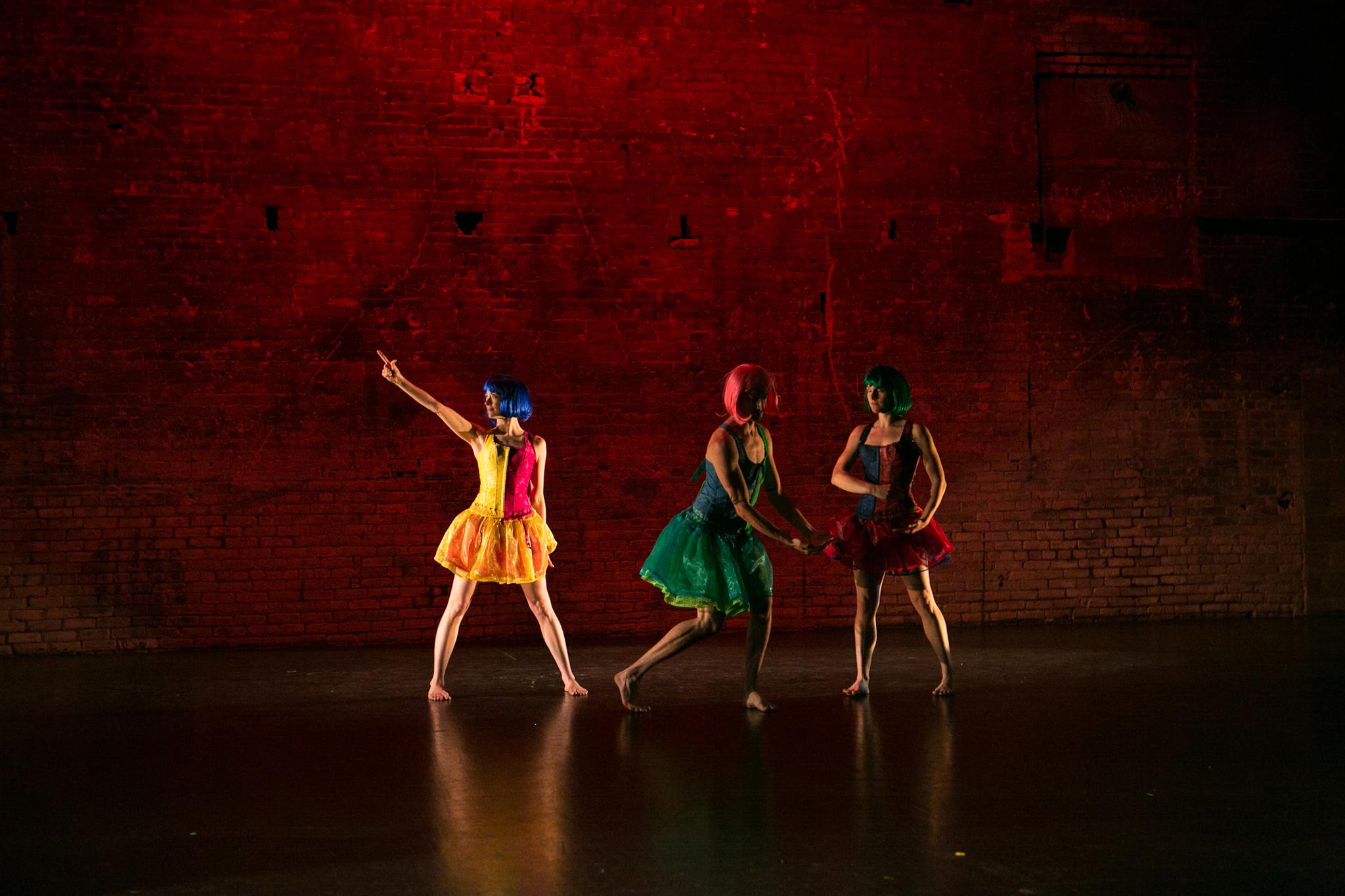
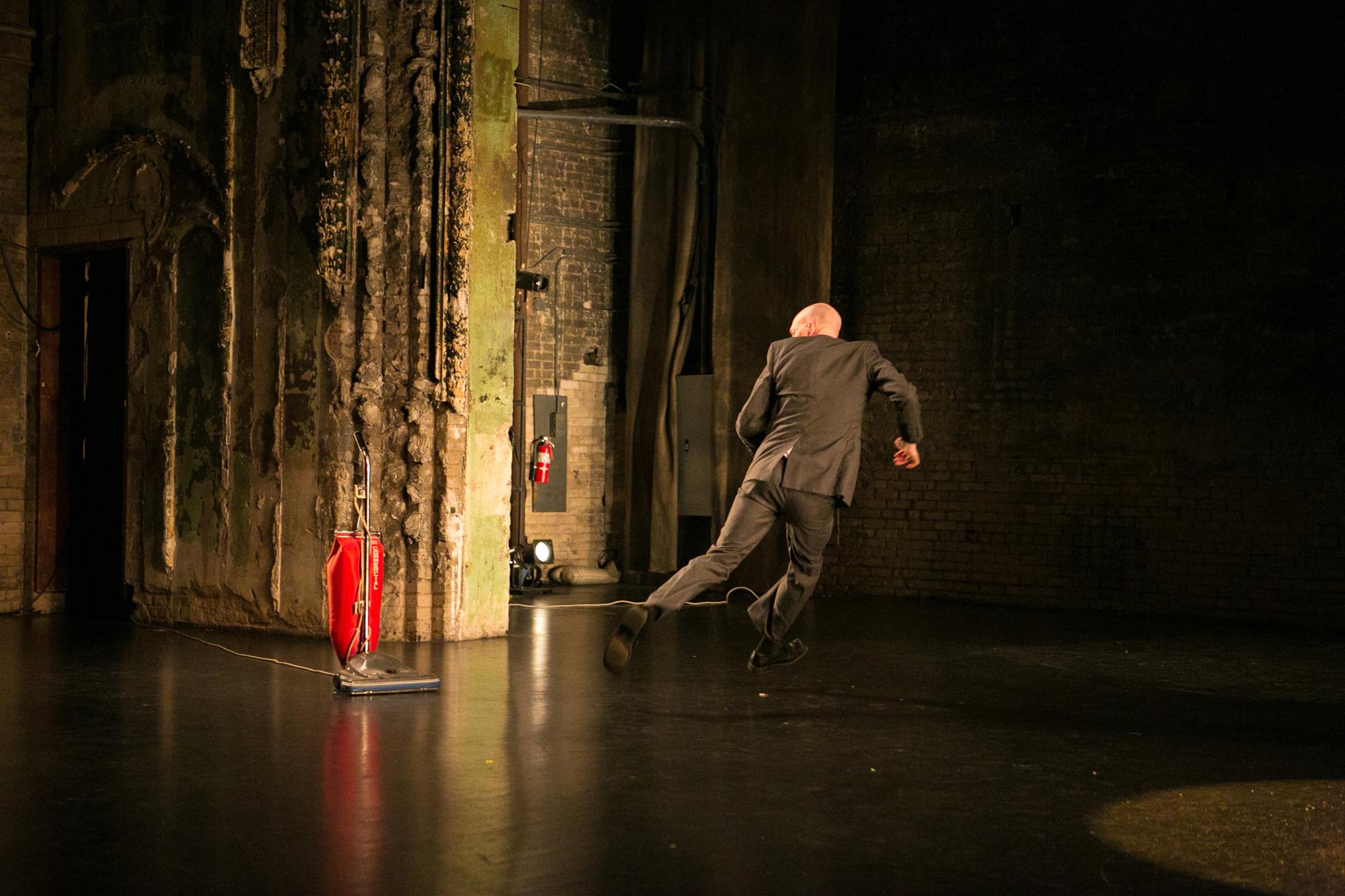
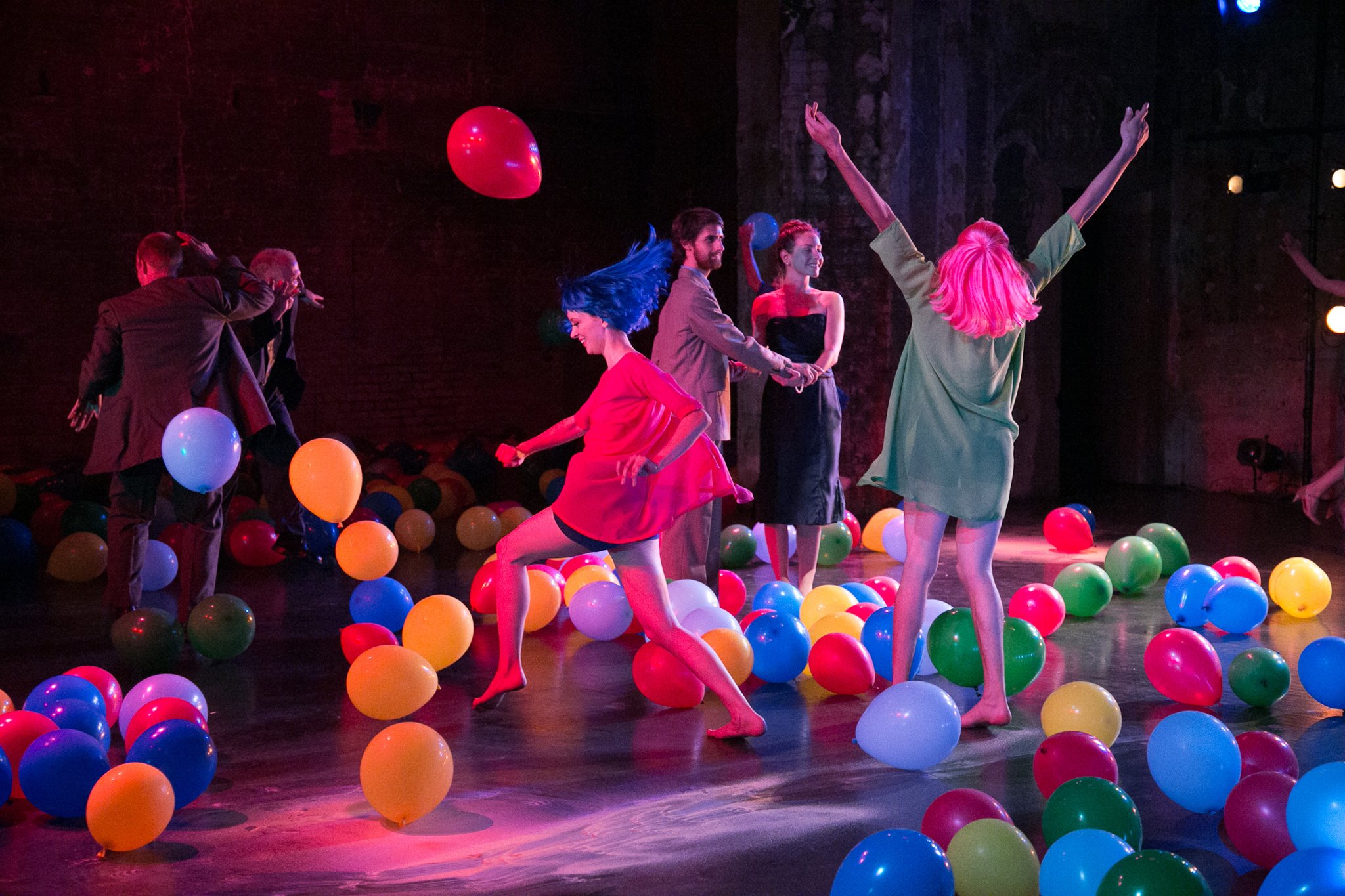
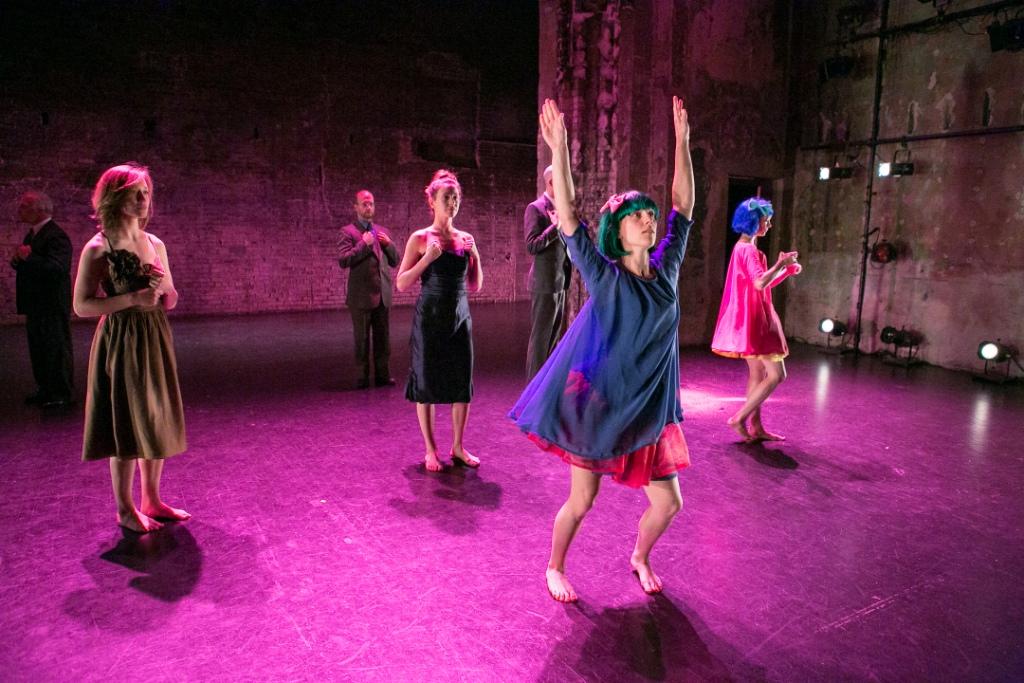
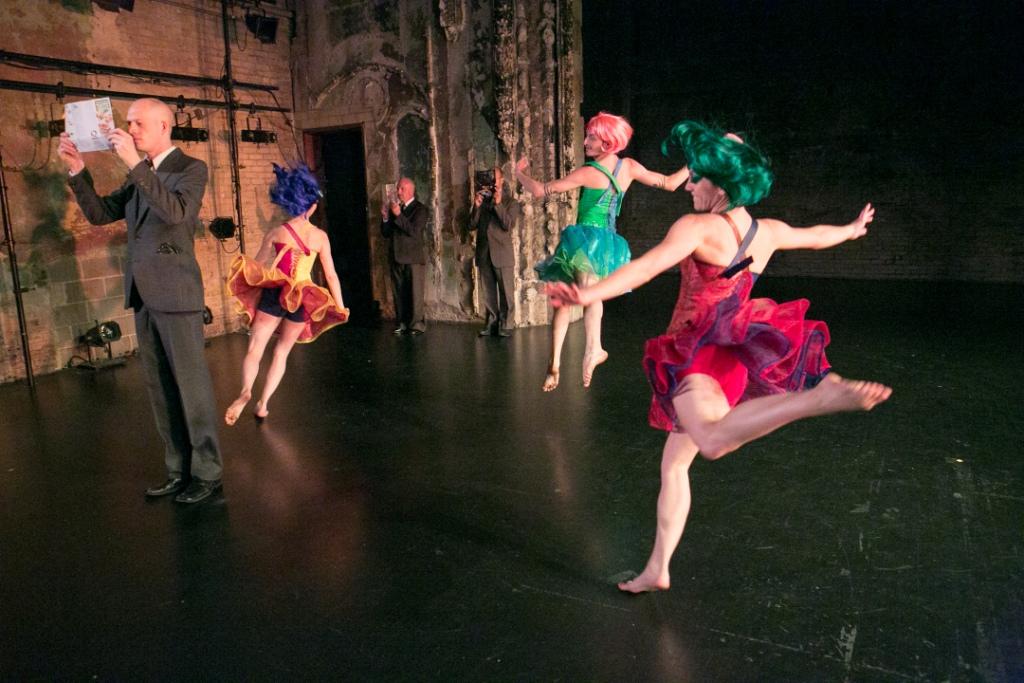
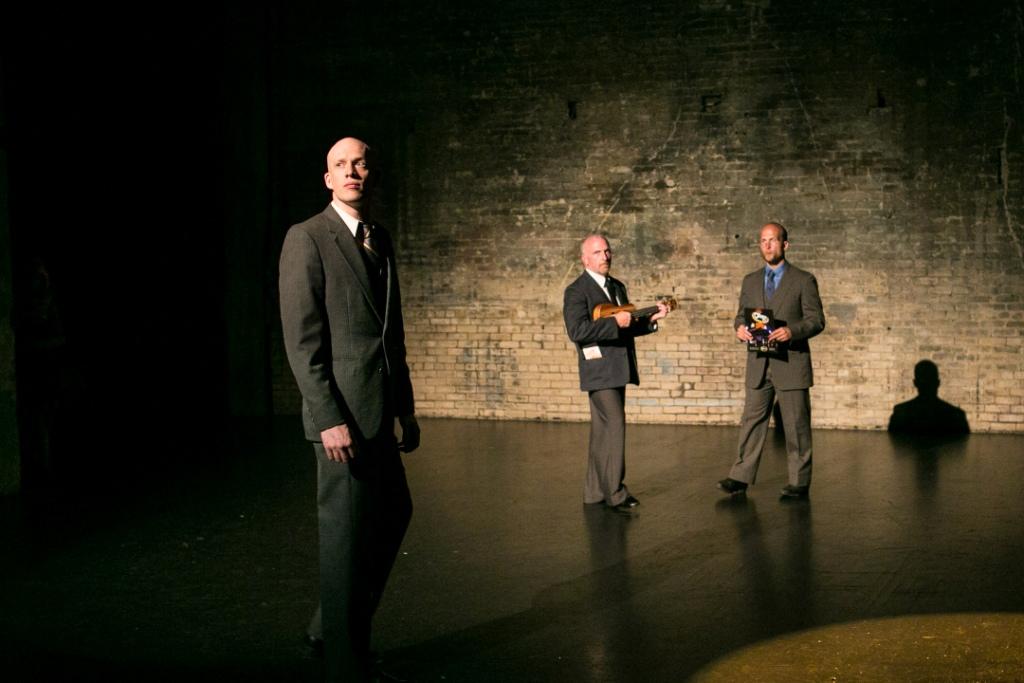
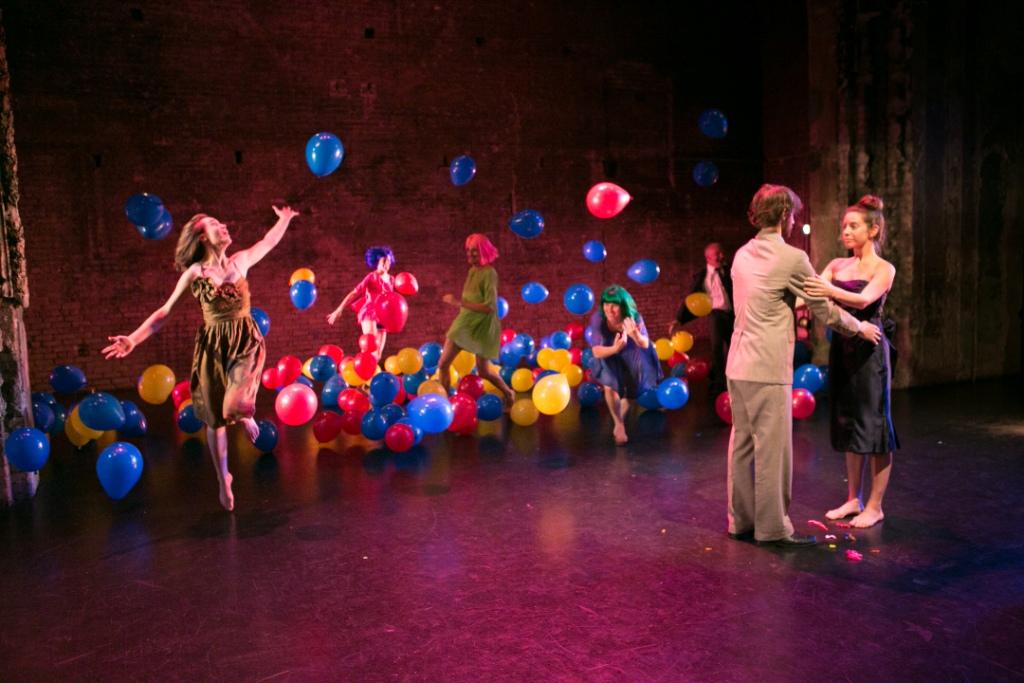
LIVE ACTION SET BILLED THEIR RECENT SHOW, BASIC NORTH, as “a performance in three directions (of three intertwining chapters)”. The three directions or chapters, which all run concurrently, are “Without Wax” (directed by Dario Tangelson), in which six intensely stilted people stare at each other and the audience and deliver tense little samples of their vanilla lives; “Start Select” (directed by Emily King and Ryan Underbakke), in which three creatures in cotton candy wigs and psychedelic trapeze dresses cavort to the 8-bit music of early video games; and “Quiet Heart” (directed by Noah Bremer), in which a solitary figure, a meek and quiet everyman (Bremer himself), explores escape. What these three are meant to have in common, I can’t be sure. But I saw a prevailing theme about emotion: fear of emotion, fascination with emotion, longing for emotional catharsis. Might Basic North, then, refer to the emotional climate here in Minnesota, this icy place where people husband all their resources against the winter that is always coming?
If that’s it (and I could be wrong), then Tangelson, especially, tunes his icicles to perfect pitch: witness his actors’ tight postures, how they pressure each other into speech with their gazes, how they chomp out their inoffensive answers. When they take turns sharing breakfast choices, one brightly says, in staccato, “I have a bowl of Life,” then immediately looks at someone else; the others sweep their robotic stares in the same direction, isolating another member of the tribe in their high beams.
But emotional deep-freeze is hard theatrical ground to hoe: after you’re done laughing, you want something to get the taste of sterility (the taste of wasted Life?) out of your mouth. Enter Bremer. When he comes flapping onto the stage — gangly, ghost-pale, wide-eyed as a koala — he’s immediately lovable. The world hasn’t planned for him – see the microphone set at the height of his lowest jacket button — but he’s endearingly hopeful; the occasional flicker of distress only adds to his charm.
Still, ten minutes of watching him attempt to cope with this uncooperative world and I’m suddenly bored. This innocent needs something more vital to set him off: a siren to break his heart, a grinding world to oppress him; even a paper moon, if it were shiny enough, would do. King and Underbakke’s dancers initially promise this, and an early scene finds Bremer caught in their kaleidoscopic tulle tumble. But, in the end, the dancers seem to have no lasting relation to him or anyone else — shimmying and shimmering, they’re as chilly and limited as the music they dance to.
______________________________________________________
This innocent needs something more vital to set him off: a siren to break his heart, a grinding world to oppress him; even a paper moon, if it were shiny enough, would do. But the dancers seem to have no lasting relation to him or anyone else — shimmying and shimmering, they’re as chilly and limited as the music they dance to.
______________________________________________________
The show’s creators seem to be aware of this problem, because around the three-quarter mark, the lights shift and suddenly we’re in a love scene written for Bremer’s character. He’s loved her all along, it turns out, and she doesn’t know a thing about it. It’s all rather poignant: he serenades her, someone strums a ukulele, she walks up the stairs into the audience, unawares, but with her back prickling — her shoulder blades listening, almost (a beautiful bit of physical acting by Joanna Harmon). That is, it’s poignant until you recall this love story has popped out of nowhere. And then to nowhere it swiftly returns: there’s no further mention of it.
Instead, another love story takes over, between two of Tangelson’s lifeless half-people. Though they’re intermittently funny and sweet (“You! the one with the cool stance!” she calls across a party scene; “You noticed!” he responds), ultimately, they take a painfully long time to get to what you might call a consummation, the stiff kiss of a couple of crash-test dummies. Then there’s a balloon drop, joyful but plastic, another sign that the stage action generates insufficient bounce of its own.
For all that, Basic North is mostly enjoyable. The performers excel at their deadpan roles, investing them with as much life as they can (particularly the mischievous Katelyn Skelley), and the dancers flip along with eye-soothing grace. The dialogue is witty and offbeat: anticipating the climactic party, one character says, “I’m going to run around and get all disheveled, and show up very late so it seems like I have something better to do.” And there’s this choice exchange from the party: “Have you tried gruyere?” “No, not yet.” The love of words evinced here can’t help winning me, and the actors deliver these gems with spot-on comic timing.
And we do get glimmers of something a little more complex under the surface of Basic North’s pack ice. Tangelson’s cast of characters hint at a more precise take on peculiarly modern and urban angst. For example, they wake up to cell phones; I suppose everyone of a certain class and age range does, these days, but this is the first time I’ve seen any art take account of it. They carry the traces of their lives — string, a tennis ball, hand lotion from China — around with them in their backpacks and capacious bags, constantly laden with their individuality, yet carefully anonymous. They’re the people you stand next to on the downtown bus. And I’d like to know more about them, but Tangelson et al seem unwilling to plumb their isolation and longing too deeply. Are they afraid of what they’ll find?
______________________________________________________
Noted performance details:
Basic North, a new work by Live Action Set, was on stage at the Southern Theater in Minneapolis June 28 through July 8.
______________________________________________________
About the author: Originally from Tallahassee, Lightsey Darst is a poet, dance writer, and adjunct instructor at various Twin Cities colleges. Her manuscript Find the Girl was recently published by Coffee House; she has also been awarded a 2007 NEA Fellowship.